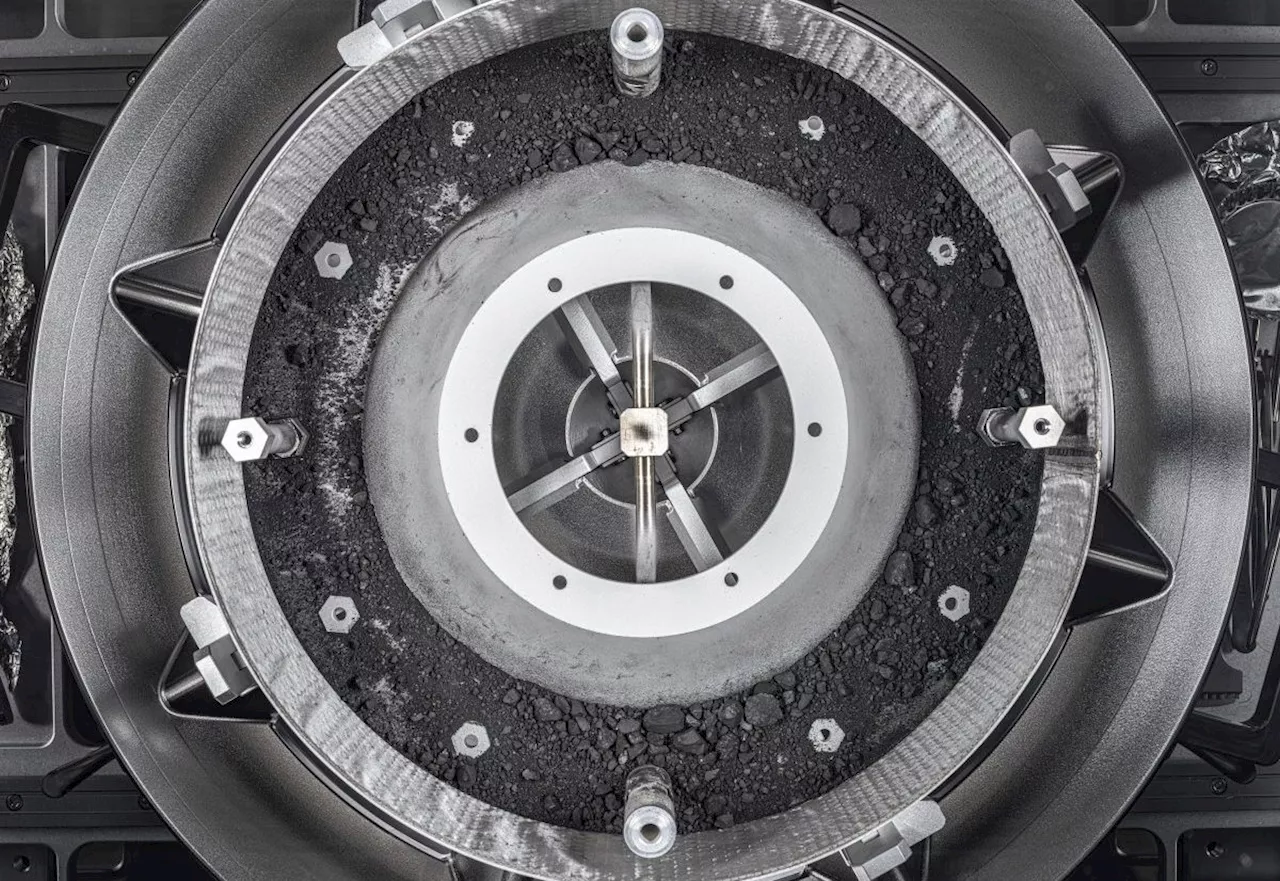NASA's Osiris-Rex mission brought back samples from asteroid Bennu, revealing sodium-rich minerals and amino acids. These findings suggest asteroids might have delivered the building blocks of life to Earth and that these ingredients interacted with water early in our planet's history.
Scientists reported Wednesday that asteroids hold not only the pristine building blocks for life but also the salty remains of an ancient water world. The findings provide the strongest evidence yet that asteroids may have planted the seeds of life on Earth and that these ingredients were mingling with water almost right from the start.
'That's the kind of environment that could have been essential to the steps that lead from elements to life,” said the Smithsonian Institution’s Tim McCoy, one of the lead study authors. NASA's Osiris-Rex spacecraft returned 122 grams (4 ounces) of dust and pebbles from the near-Earth asteroid Bennu, delivering the sample canister to the Utah desert in 2023 before swooping off after another space rock. It remains the biggest cosmic haul from beyond the moon. The two previous asteroid sample missions, by Japan, yielded considerably less material. Small amounts of Bennu’s precious black grains — leftovers from the solar system's formation 4.5 billion years ago — were doled out to the two separate research teams whose studies appeared in the journals Nature and Nature Astronomy. But it was more than enough to tease out the sodium-rich minerals and confirm the presence of amino acids, nitrogen in the form of ammonia and even parts of the genetic code. Some if not all of the delicate salts found at Bennu — similar to what’s in the dry lakebeds of California’s Mojave Desert and Africa’s Sahara — would be stripped away if present in falling meteorites. 'This discovery was only possible by analyzing samples that were collected directly from the asteroid then carefully preserved back on Earth,' the Institute of Science Tokyo’s Yasuhito Sekine, who was not involved in the studies, said in an accompanying editorial.Combining the ingredients of life with an environment of sodium-rich salt water, or brines, “that’s really the pathway to life,” said McCoy, the National Museum of Natural History's curator of meteorites. “These processes probably occurred much earlier and were much more widespread than we had thought before.' NASA’s Daniel Glavin said one of the biggest surprises was the relatively high abundance of nitrogen, including ammonia. While all of the organic molecules found in the Bennu samples have been identified before in meteorites, Glavin said the ones from Bennu are valid — “real extraterrestrial organic material formed in space and not a result of contamination from Earth.” Bennu — a rubble pile just one-third of a mile (one-half of a kilometer) across — was originally part of a much larger asteroid that got clobbered by other space rocks. The latest results suggest this parent body had an extensive underground network of lakes or even oceans, and that the water evaporated away, leaving behind the salty clues. Sixty labs around the world are analyzing bits of Bennu as part of initial studies, said the University of Arizona’s Dante Lauretta, the mission’s chief scientist who took part in both studies. Most of the $1 billion mission's cache has been set aside for future analysis. Scientists stress more testing is needed to better understand the Bennu samples, as well as more asteroid and comet sample returns. China plans to launch an asteroid sample return mission this year. Many are pushing for a mission to collect rocks and dirt from the potentially waterlogged dwarf planet Ceres in the main asteroid belt. Jupiter’s moon Europa and Saturn’s moon Enceladus also beckon as enticing water worlds. Meanwhile, NASA has core samples awaiting pickup at Mars, but their delivery is on hold while the space agency studies the quickest and cheapest way to get them here.The Associated Press Health and Science Department receives support from the Howard Hughes Medical Institute’s Science and Educational Media Group and the Robert Wood Johnson Foundation. The AP is solely responsible for all content
ASTEROID BENNU LIFE ORIGINS NASA OSIRIS-REX ORGANIC MOLECULES AMINO ACIDS SALT WATER
United States Latest News, United States Headlines
Similar News:You can also read news stories similar to this one that we have collected from other news sources.
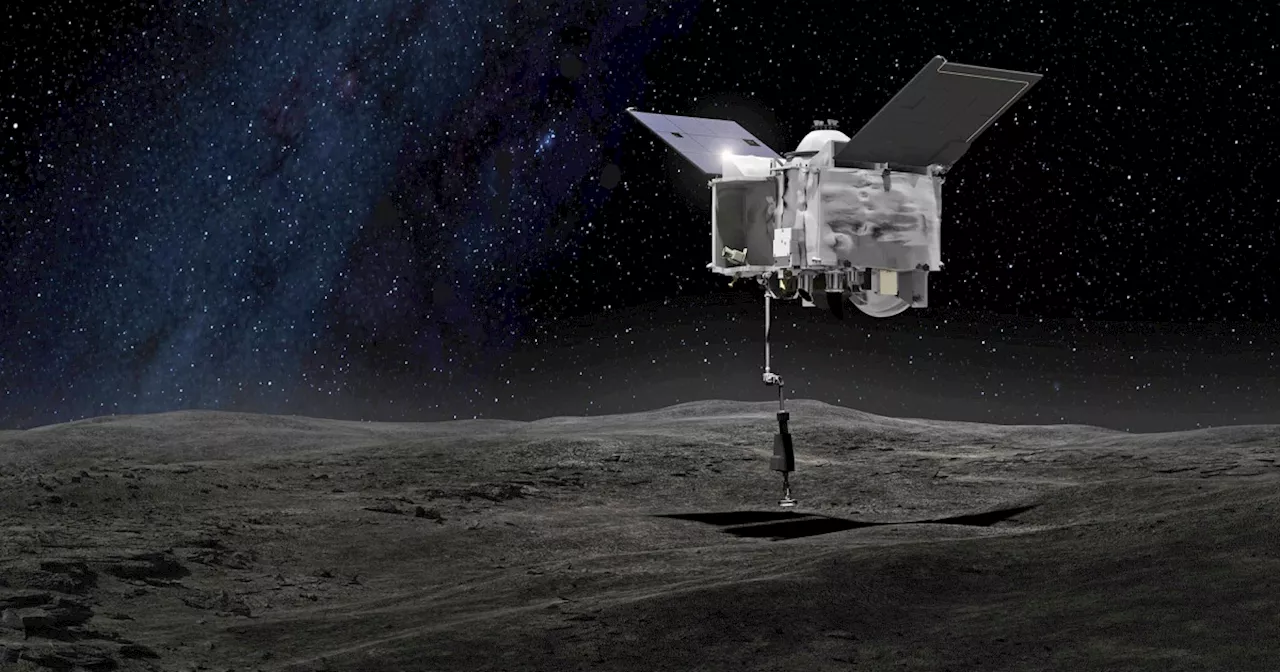 Asteroid Bennu Yields Organic Molecules and Clues to Life's OriginsNASA's OSIRIS-REx mission returned samples from asteroid Bennu, revealing a treasure trove of organic molecules, including amino acids and nucleobases, essential building blocks of life. Scientists believe these findings suggest that the ingredients for life may have been widespread throughout the early solar system.
Asteroid Bennu Yields Organic Molecules and Clues to Life's OriginsNASA's OSIRIS-REx mission returned samples from asteroid Bennu, revealing a treasure trove of organic molecules, including amino acids and nucleobases, essential building blocks of life. Scientists believe these findings suggest that the ingredients for life may have been widespread throughout the early solar system.
Read more »
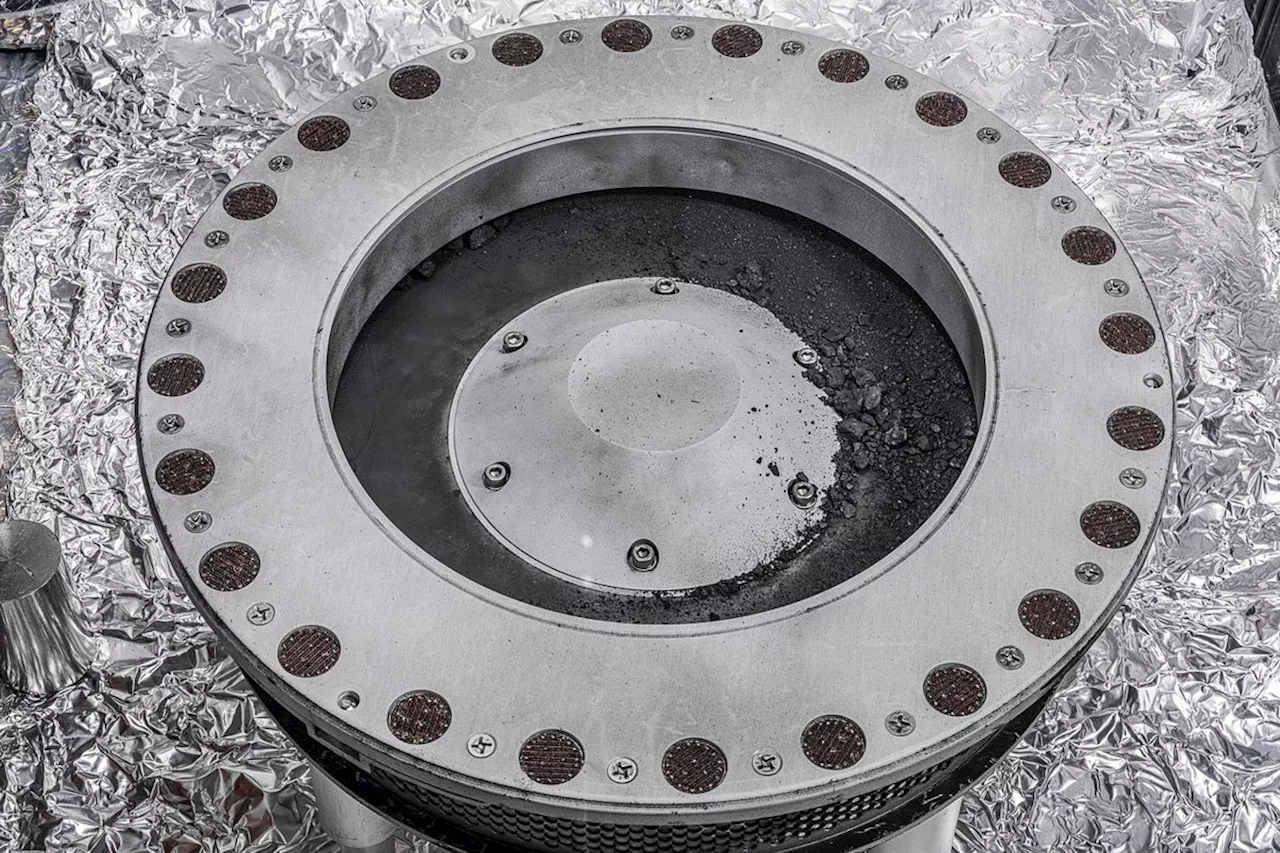 Bennu Asteroid Samples Reveal Widespread Building Blocks of Life in Early Solar System.Analysis of material from asteroid Bennu by NASA's OSIRIS-REx spacecraft reveals the presence of organic compounds, including amino acids and nucleotide bases, indicating that the fundamental building blocks of life were abundant in the early solar system.
Bennu Asteroid Samples Reveal Widespread Building Blocks of Life in Early Solar System.Analysis of material from asteroid Bennu by NASA's OSIRIS-REx spacecraft reveals the presence of organic compounds, including amino acids and nucleotide bases, indicating that the fundamental building blocks of life were abundant in the early solar system.
Read more »
 Asteroid Bennu Hints at Early Solar System's Building Blocks for LifeAnalysis of asteroid Bennu's sample reveals organic molecules, including those essential for life, suggesting the presence of primordial pools on its parent body. However, the lack of asymmetry in these molecules indicates that life may not have emerged in these ancient environments.
Asteroid Bennu Hints at Early Solar System's Building Blocks for LifeAnalysis of asteroid Bennu's sample reveals organic molecules, including those essential for life, suggesting the presence of primordial pools on its parent body. However, the lack of asymmetry in these molecules indicates that life may not have emerged in these ancient environments.
Read more »
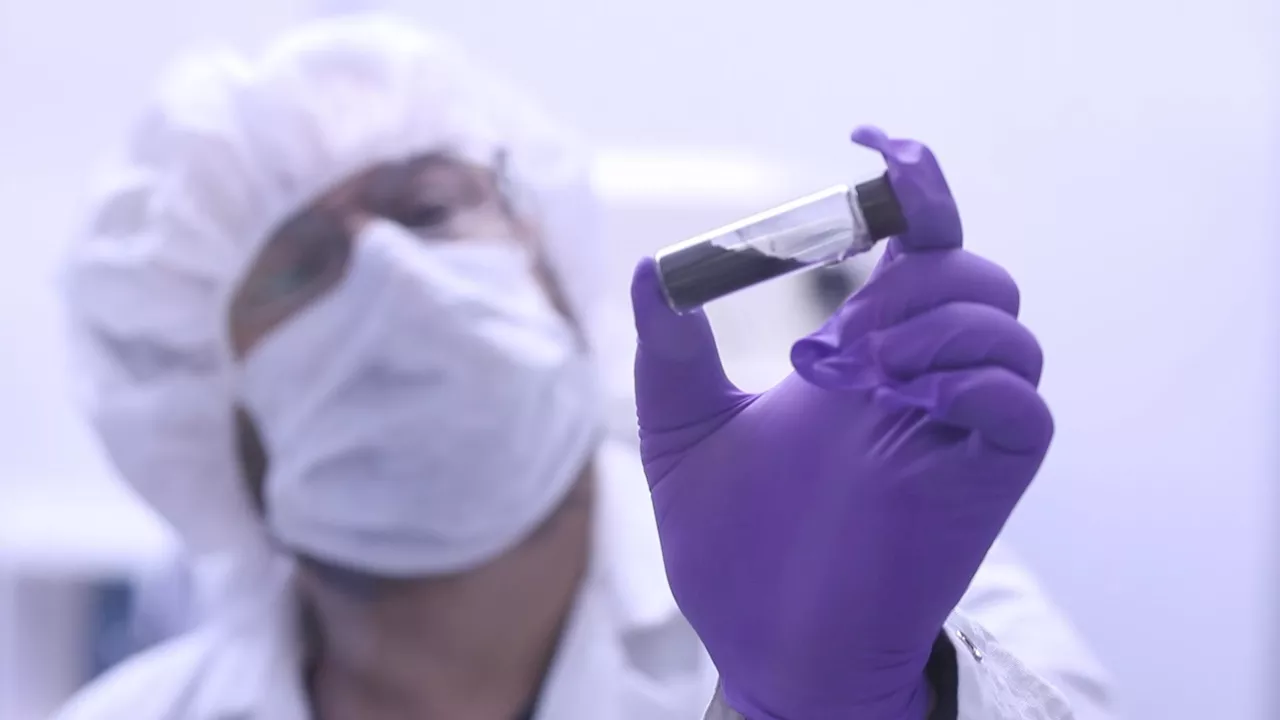 Asteroid Bennu Sample Reveals Molecules Key to Life and Evidence of Ancient SaltwaterNASA's OSIRIS-REx mission delivered samples from asteroid Bennu to Earth in 2023. Analysis of these samples revealed molecules essential for life on Earth, including amino acids and nucleobases, as well as evidence of ancient saltwater environments. These findings suggest that the conditions necessary for the emergence of life were widespread in the early solar system, increasing the odds of life forming on other planets and moons.
Asteroid Bennu Sample Reveals Molecules Key to Life and Evidence of Ancient SaltwaterNASA's OSIRIS-REx mission delivered samples from asteroid Bennu to Earth in 2023. Analysis of these samples revealed molecules essential for life on Earth, including amino acids and nucleobases, as well as evidence of ancient saltwater environments. These findings suggest that the conditions necessary for the emergence of life were widespread in the early solar system, increasing the odds of life forming on other planets and moons.
Read more »
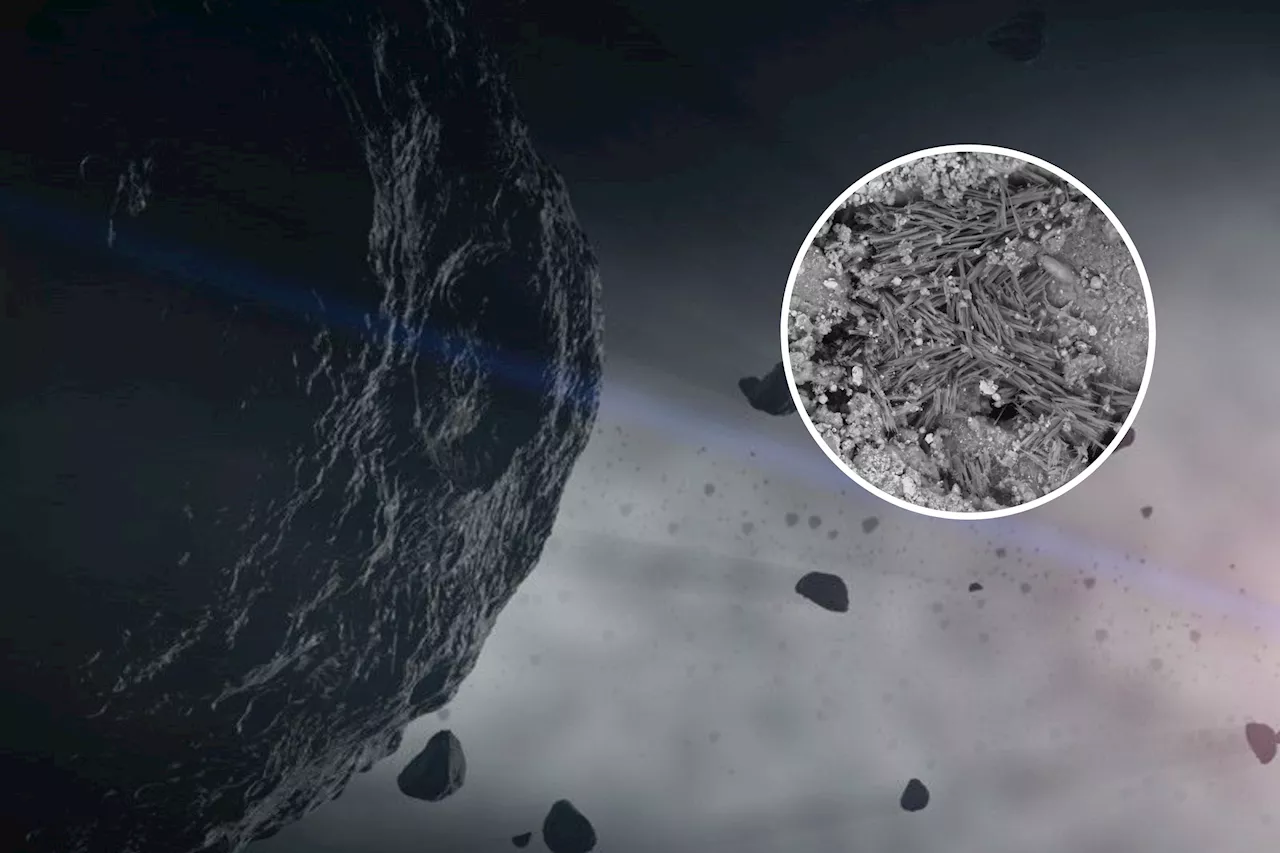 Asteroid Bennu's Samples Reveal Building Blocks of LifeNASA's OSIRIS-REx mission returned samples from asteroid Bennu, revealing the presence of amino acids, nucleobases, and evidence of ancient briny environments, suggesting asteroids may have delivered life's ingredients to Earth.
Asteroid Bennu's Samples Reveal Building Blocks of LifeNASA's OSIRIS-REx mission returned samples from asteroid Bennu, revealing the presence of amino acids, nucleobases, and evidence of ancient briny environments, suggesting asteroids may have delivered life's ingredients to Earth.
Read more »
 Asteroid Bennu Holds Clues to the Origins of LifeScientists studying samples from the asteroid Bennu have discovered a set of salty mineral deposits that formed in a unique sequence, providing clues about the type of water that flowed billions of years ago. The findings suggest that Bennu originated from an ancient, water-rich world and may have delivered essential building blocks for life to Earth.
Asteroid Bennu Holds Clues to the Origins of LifeScientists studying samples from the asteroid Bennu have discovered a set of salty mineral deposits that formed in a unique sequence, providing clues about the type of water that flowed billions of years ago. The findings suggest that Bennu originated from an ancient, water-rich world and may have delivered essential building blocks for life to Earth.
Read more »
